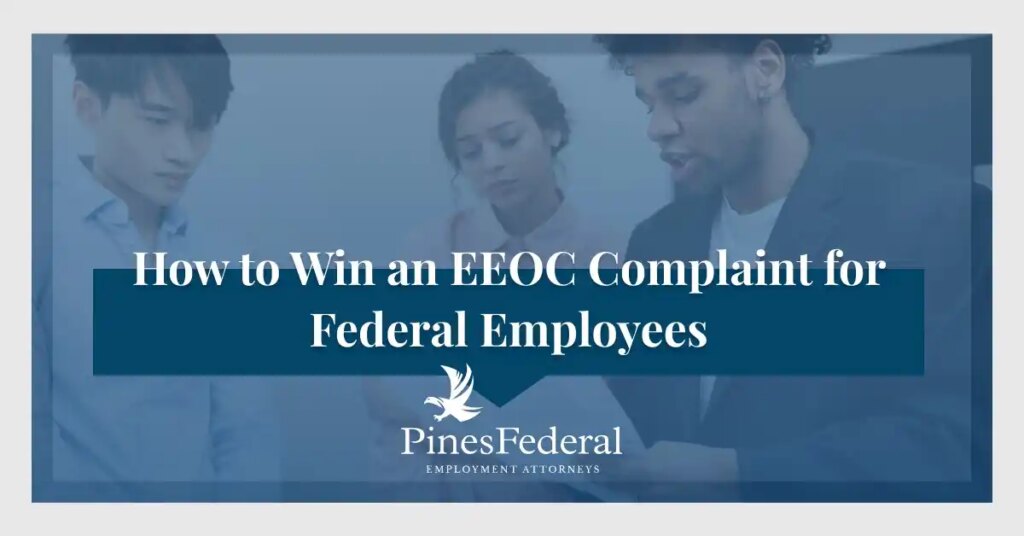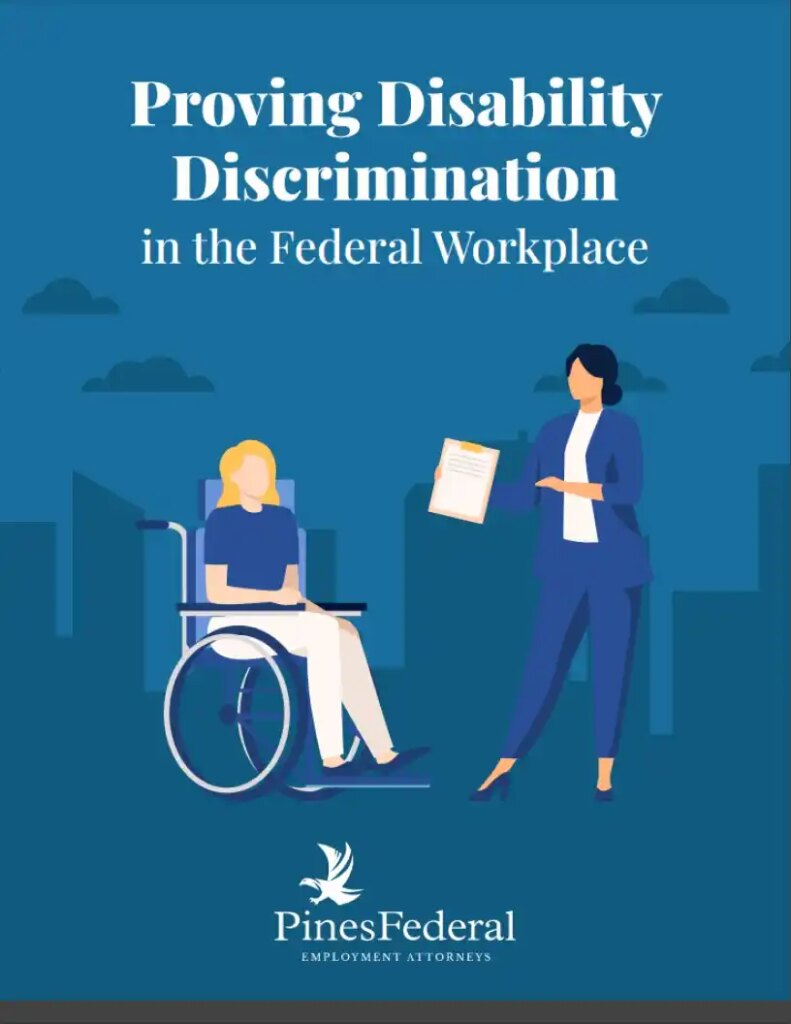
When you experience workplace discrimination, you may wonder what options you have for justice. One option is to file a complaint with the U.S. Equal Employment Opportunity Commission (EEOC). In 2018, the EEOC received over 200,000 field office queries and resolved 90,558 charges of discrimination.
These numbers may make you think, What are the chances of winning an EEOC case? Is it even worth it to file a complaint? Our federal EEOC attorneys will explain how to win an EEOC complaint with insight from our combined 60+ years of practicing federal employment law.
Please be aware: Our law firm solely represents full-time federal employees. We do not handle private sector claims (non-government). However, if you are a federal contractor who is supervised by a federal employee and have suffered discrimination or retaliation, we may be able to help.
If you are a federal employee that works for the U.S. government, please call (800) 801-0598 or fill out our online form today for help.
How to Win an EEOC Claim: The Complaint Process
When you believe you have experienced unlawful workplace discrimination, you can file a complaint with the EEOC. Your initial submission begins an “inquiry,” and an agency employee will ensure you have a valid claim.
Based on the information in your complaint and interview, EEOC staff will advise you on whether you can proceed with filing a Charge of Discrimination. A Charge of Discrimination is a signed statement alleging that an employer unlawfully discriminated against its employees.
Filing a Charge of Discrimination warrants the EEOC to take corrective action. The EEOC will notify your employer within 10 days of filing the charge. Usually, the EEOC will ask you and the employer to attempt to resolve the dispute through mediation. If mediation is unsuccessful, EEOC may begin an investigation into the charge.
If EEOC determines that unlawful discrimination occurred, they may attempt to reach a settlement with the employer or file a lawsuit on your behalf. After 180 days (in most cases), you may request a “right to sue” so you can file your own lawsuit. The ultimate outcome of your complaint depends on your goals and what you hope to achieve.


“They listened to my needs and concerns, were very empathetic and understanding, and recommended solutions with genuine care for me being successful. I highly recommend Pines Federal for anyone needing EEO enforcement guidance!”
How to Win an EEOC Complaint and EEOC Mediation Tips
When you’re a federal government employee questioning whether to file an EEOC complaint or wondering how to win an EEOC mediation, we can help. Following these steps can help you successfully navigate the EEOC complaint process.
1. Speak with an Experienced Federal Employment Law Attorney
Successful EEOC complainants usually have an attorney draft their complaint and manage the process. You can submit your inquiry using the EEOC’s online portal and forms. However, the information requested on these forms may not convey the facts of your situation to a busy agency employee.
An attorney will know what details to include and how to get your complaint noticed. They’ll also know the deadlines and procedures to follow so that EEOC won’t dismiss your complaint. When preparing for mediation, your attorney will coach you through the process and how to most effectively communicate your goals.
2. Provide Compelling Evidence

Successful EEOC complaints have evidence to support the stated allegations.
Before filing your complaint, ensure you have some sort of evidence to back up your claim.
When you meet with your attorney, they will determine the right type of evidence for your situation.
Typical evidence includes:
- Emails, letters, and other communications;
- Disciplinary records;
- Witness statements from coworkers, clients, or customers; and
- Video evidence from personal devices or surveillance cameras.
Evidence is also valuable for mediation. While you may expect your employer to be truthful, you might need to refute exaggerations, omitted facts, or lies. Your evidence could help sway your employer to accept your position and reach a resolution.
4. Be Professional and Maintain Composure
Facing discriminatory employment practices can make you feel a variety of emotions. Still, it’s a good idea to remind yourself of your goals, including your future career and reputation. Approaching your complaint and mediation with a level head goes a long way toward positively influencing the outcome of your case.
When you meet with your attorney, they will help you practice and prepare to stay cool during the confrontations that might occur during mediation. You deserve a successful outcome, so be sure to assess your emotions before going forward.
At Pines Federal, we understand the seriousness of unlawful employment practices. Attempting to navigate the EEOC’s complaint system is overwhelming for many federal employees. We dedicate ourselves to serving as advocates and fighting tirelessly for federal employees’ rights.
We are committed to holistically caring for our clients and addressing the big picture. We might tell you that your best option is to file an EEOC complaint and proceed with an investigation. Or, we may advise you to seek a right-to-sue authorization so we can begin fighting your case immediately. It depends on the unique circumstances of your situation.
Learn how we can assist you today by calling (800) 801-0598 or sending us an online message.
[DOWNLOAD] Proving Disability Discrimination in the Federal Workplace
